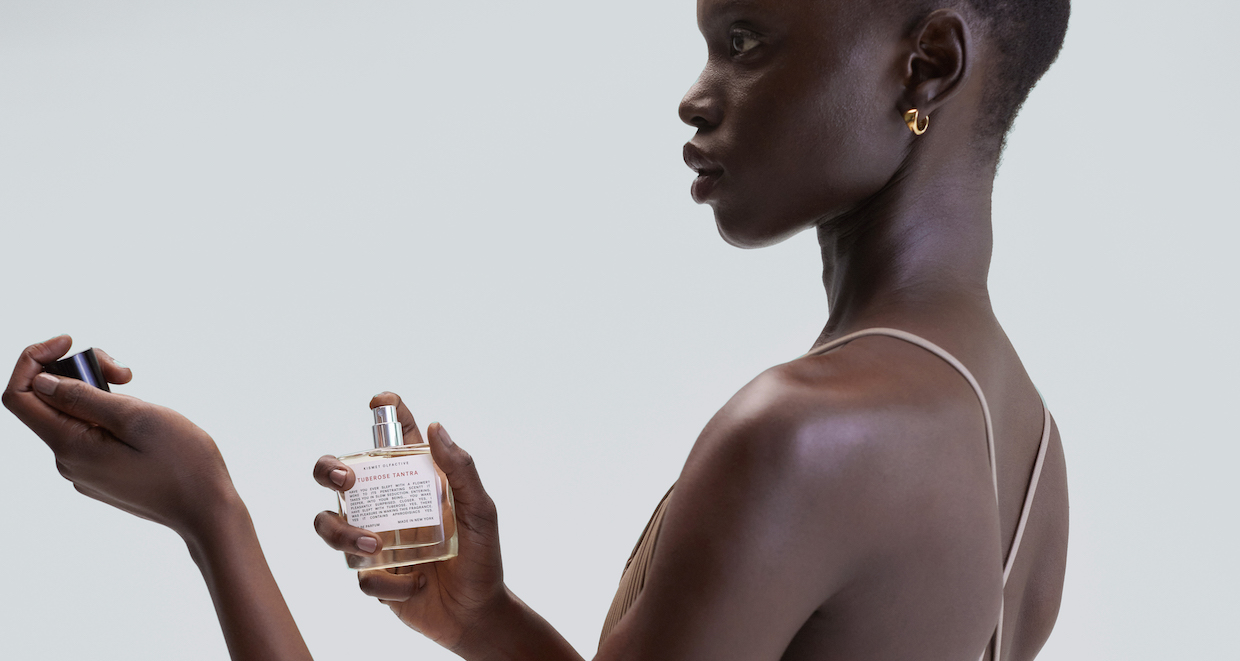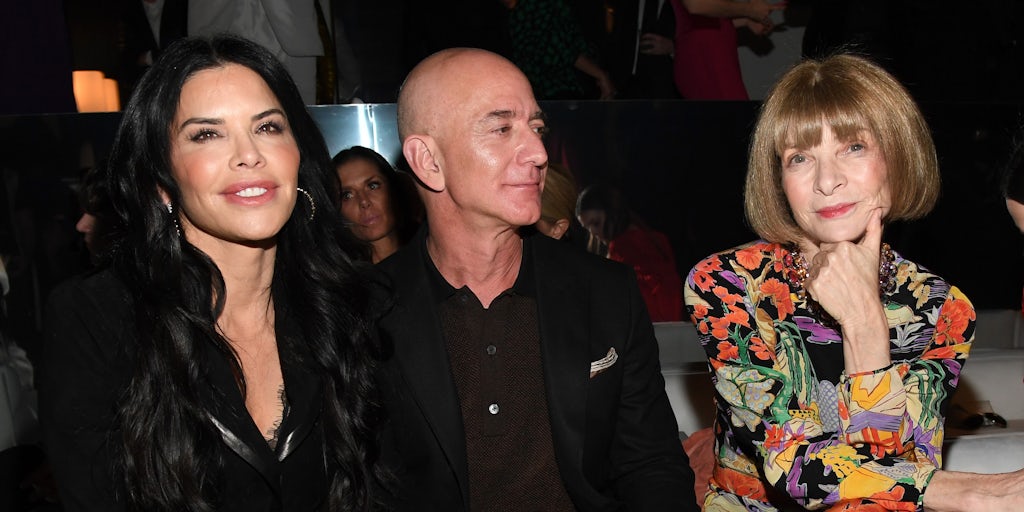Beauty & Wellness Briefing: Moda Operandi’s beauty department is here, but is it any good?
This week, I take a look at the new Moda Operandi beauty shop and whether it is poised to boost the luxury e-tailer’s bottom line. Scroll down to use Glossy+ Comments, giving the Glossy+ community the opportunity to join discussions around industry topics.
Eight months after announcing its expansion into beauty, luxury e-tailer Moda Operandi is ready to share its vision with the world.
On Tuesday, Moda Operandi launched its dedicated beauty vertical with 55 skin-care, fragrance, makeup, hair-care and body-care brands from familiar brands including La Mer, Noble Panacea, Tata Harper, Eighth Day and Crown Affair. Exclusive products include select items from five brands including skin-care brand Dr. Lara Devgan Scientific Beauty and makeup brand Violette FR. Moda Operandi is admittedly late to the trend of adding beauty to its luxury assortment to goose sales. Net-a-Porter launched beauty in 2013, for example. More recently, Farfetch launched beauty in April 2022, after acquiring high-end retailer Violet Grey in January of the same year. And prestige retailer Shopbop added beauty in Oct. 2022.
Jessica Matlin, beauty director of Moda Operandi, said she spent time with the company’s private client advisors to understand the desires of its ultra-high-net-worth and most loyal shoppers. Former Harper’s Bazaar’s beauty director and currently co-host of the “Fat Mascara” podcast, which she co-founded, Matlin was appointed to her Moda Operandi post in May 2022. She said she’s also spoken with Lauren Santo Domingo, co-founder of Moda Operandi and former Vogue editor, to learn more about her most-loved items and gain a strong understanding of the Moda Operandi point of view.
Matlin’s own vision for Moda Operandi’s beauty category consists of a mix of established and new brands, ranging from La Mer to Costa Brazil. While it can be hard to innovate within the beauty category, the company’s fashion-forward approach appears strong, especially within makeup. Featuring brands like Isamaya, with its horse-shaped lipstick and mascara tubes, and products in bold shades of pinks and reds, from Chantecaille, La Bouge Rouge and Violette, the makeup assortment demonstrates the idea that makeup can be an accessory as much as any small leather good. Fragrance, it seems, is the place where Moda Operandi is keen to show it can be the purveyor of the next buzzy brand. You won’t find Tom Ford or Kilian, at launch; instead, it’s niche indie brands like Ellis Brooklyn, Taffin and a gorgeous bottle from Santa Maria Novella composing the assortment.
“I’m thinking about every aspect of a person’s beauty routine and what lines and products feel right for us,” said Matlin. “But I also want to make it plain that this is just the beginning of beauty for Moda Operandi. We don’t have every category covered yet. We’re going to add devices, nails and wellness.”
Despite a consistent narrative that Moda Operandi caters to ultra-high-net-worth shoppers, which it does, the e-tailer has attempted to broaden its customer base over the years. A 2019 Vogue Business story centered on Moda Operandi’s creative refresh and tech-focused hiring spotlighted a recent trunk show focused on items for $500 or less. “The idea was to dispel a notion that shopping at Moda is unattainable to any but the über wealthy,” the story states. At around the same time, the company had also expanded into men’s, home and jewelry; hired more than 170 people in 2019 alone; and begun expanding into China. Matlin views beauty as a continuation of that effort.
“The launch of this category will not only increase order frequency and the cart size of existing clients, but it will also help us reach a new, aspirational customer demographic that shares our appreciation for impeccable curation and storytelling,” said Jim Gold, CEO of Moda Operandi.
Moda Operandi’s 2019 relaunch coincided with a splashy party at the $18.5 million Gramercy Park townhouse Santo Domingo shares with her husband, Andres Santo Domingo. The invitation read “Casual Dinner” and featured guests like the Olsen sisters, Diane von Furstenberg and Oscar de la Renta. But when Covid-19 hit the following year, circumstances quickly changed. At the beginning of 2020, 50 Moda Operandi employees across the business lost their jobs, and the Shanghai offices closed that January. Moda Operandi then shuttered its men’s business in April 2020, citing the pandemic, before securing $100 million in equity and debt financing from existing investors, according to Business of Fashion.
In a Nov. 2020 story, Air Mail reported that Moda Operandi had run through its $345 million of venture-capital money and that its valuation had fallen from a peak of $650 million during its Series F in 2017 to an estimated $430 million.
“Moda Operandi’s business model is questionable,” said Milton Pedraza, CEO of the Luxury Institute. “Over the last few years, Covid-19 put a damper on trunk shows, but the question is whether it was ever a scalable model. [Moda Operandi’s] challenge has been engaging and inspiring the ultra-high-net-worth client differently from how brands do it.” Trunk shows are a traditional fashion sales tool, traditionally used by designers to sell collections to retailers and high-end customers in intimate settings before they’re officially rolled out. Moda Operandi initially applied an e-commerce overlay onto trunk shows, allowing people to pre-order items as soon as they saw them on the runway.
Pedraza said the company’s business model flaws were exposed due to Covid-19 and the greater pivot of luxury toward DTC. But his criticism was not reserved solely for Moda Operandi; he pointed out that it is difficult to achieve profitability at scale when catering to an ultra-niche group of people. He pointed to the high customer acquisition costs involved, low retention rates, and common reliance on discounting, adding that ultra-high-net-worth clients ultimately contribute very little to overall sales. Instead, large-scale luxury e-commerce retailers lean on brands with mid-tier pricing that are more digestible to broader customer groups. It’s similar to how luxury fashion brands like Gucci often rely on more accessibly priced accessories and leather goods to make up the bulk of sales. According to 2019 data from Moda Operandi, 38% of customers visit daily to browse and learn, and 87% visit at least weekly. Additionally, 4-5% of website visitors come from beauty websites before visiting Moda Operandi.
Overall, the luxury industry was heavily hampered by Covid-19 in 2020. The market for personal luxury goods contracted for the first time since 2009, falling by 23% to $232 billion, according to a 2021 Bain & Co. report. Furthermore, beauty purchases amounted to $51 billion globally in 2020, a decline of 20% compared to 2019. Apparel and watches both declined by 30%, with apparel trends influenced heavily by lockdown policies, resulting in less need for formal wear and more demand for streetwear and athleisure.
Keeping in line with Moda Operandi’s existing curatorial model, the beauty section relies on differentiation through editorials on subjects like fragrances and skin care and spotlights on buzzy products and brands. Perhaps the biggest differentiator from other luxury e-tailers is the beauty experiences it offers: It’s selling a trip to Iceland and staying at the Blue Lagoon, in conjunction with the BL+ beauty brand, for $13,000. There’s also a trip to the Caribbean with Costa Brazil for $7,200, and a one-on-one appointment with Dr. Lara Devgan, the founder of her eponymous brand, for $12,000. In addition to beauty existing as a standalone category in the navigation tab, beauty products will be woven into curated sections like “The Ski Shop” and “Everyday Essentials.” Eventually, they’ll appear on fashion product pages via “Get the Full Look” suggestions.
“There is space for everyone to succeed,” said Matlin. “Moda Operandi has a devoted private client base and people who look to us as a style authority. We look at beauty through a lens of fashion, [which not all retailers] offer.”
Inside our coverage:
Alix Earle is the latest TikTok beauty star you need to know.
Morphe closes all U.S. retail stores.
Glossy research on the buzziest derm brands.
Why men are getting penis injections.
What we’re reading:
Luxury beauty checks into hotels.
Clean fragrance brand Skylar is acquired by Starco Brands.
A look at Lancôme’s new tool for people with limited mobility.





